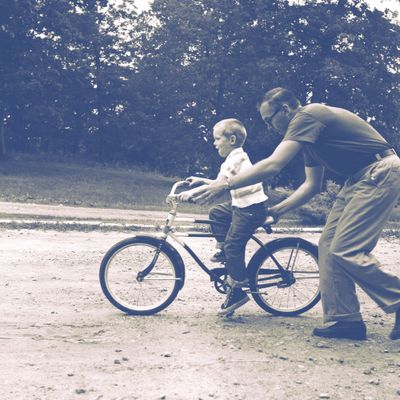
While the first few years of life are tremendously impactful — the patterns of how you attach to loved ones start to form, you start to mentally organize the world into people, places, and things — you don’t remember them. The phenomenon is so pervasive that psychologists have been studying it since 1893, and, all the way back in 1916, Sigmund Freud was remarking on “the remarkable amnesia of childhood,” which, of course, he attributed to trauma. More recently active, and less sexually obsessed, researchers have found that the earliness of your memories depends on the house — and culture — your were raised in.
One of the first studies to break ground on the cultural relativism of childhood memory came from a group at the University of Otago in New Zealand led by Shelley MacDonald. Published in 2000, the study compared the earliest childhood memories of European, Maori, and Asian-heritage New Zealanders. The researchers found that Asian participants’ earliest memories were, on average, at 4.5 years, European were at 3.5 years, and Maori were at 2.6 years. The authors reasoned that it was the richness of Maori oral culture that drove the early memories. “The traditional saying that ‘A Maori walks backwards into the future facing the past’ … reflects the importance of both personal and tribal history that characterises Maori culture,” MacDonald and her colleagues wrote. “We hypothesise that this cultural emphasis on the past may result in a home environment in which talk about past experiences is actively encouraged.”
To turn the Joan Didion the quote slightly on its ear, it’s not that we tell ourselves stories to live, but we tell each other stories in order to remember. Indeed, a follow-up 2008 study found that Maori mothers told more elaborate stories of giving birth than European New Zealanders, providing evidence that Maori children grow up in a “richer narrative environment” than their peers, and a 2015 study found that the more a mother identified with Maori culture, the richer stories she told about her adventures in mothering.
“Descriptive storytelling renders the event more vividly in memory, whether the storytelling takes place during the event or afterwards,” University of Otago psychologist Elaine Reese, who co-authored the 2008 and 2015 studies, wrote to Science of Us in an email. “We know from asking parents about when they reminisce that these conversations are likely to take place just after the event or in the next day or two, a time when the memory is still consolidating.”
But other research shows that there’s more to the story of storytelling. Reese pointed me to the work of Dr. Federica Artioli, another researcher at the University of Otago. In a 2012 paper, Artioli took the question of early memory and turned it toward Italy, a country of interest because “it is a Western but familial-oriented culture, where multigenerational family ties are still strong in comparison with other European counterparts, providing for the opportunity to investigate the offset of childhood amnesia as a function of growing up in an extended family structure.” She found that kids that grow up in extended family — grandparents, aunts, wacky uncles — have earlier and denser memories than kids who just grow up in a “nuclear” family of just Mom and Dad. Having the chance to talk with adults beyond their parents reduced the amnesia. In a 2014 study, Artioli and Reese found that in New Zealand, kids that grew up with parents who divorced before 7 also had earlier memories. Indeed, in both the Italian and the divorced families, the age of first memory was just about the same as the Maori young adults: 2.5 years.
“We have speculated that extended family households in the early years (and early separation/divorce often leads to blended or extended family households) may provide a richer narrative environment for young children, and thus earlier memories,” Reese explained. But there are probably lots of reasons for earlier memories: Parental separation quite memorably rends the world of a young child, so if it happens early, she says that the event “may emblazon other early events into memory with more vividness than would occur for children whose lives are more routine in the early years.” Humans tend to remember emotional events, so if your parents divorced, the emotional tumult will act as an anchor within your interior seascape. It’s even further evidence to how the relationships you had with your family of origin aren’t just autobiographical fact, but in a very real way shape the functioning of your mind.
Reese owes her interest in early childhood memories and storytelling to her grandmother (who had the staggeringly elegant name Adele Brossier Reese), who lived with her family when she was tiny and would tell her stories every night of growing up in the late 19th century. In other words, the memory scholar herself grew up in a narrative-rich environment, and that seems to be the thing that’s driving all these early remembrances across cultures. So if you have young kids, tell them tales. And you might wanna call up Mom and say thanks for all the yarns she spun to you.




